In the process of deep integration with the world , Vietnamese literature and art are facing new opportunities, but also many challenges. Therefore, clearly identifying the boundary between opportunities and challenges is more urgent than ever.

Past glory, present challenge
In the past, literature and art were particularly sharp weapons in the wars against invaders, to gain independence and freedom for the country. Artists and writers became brave soldiers, dedicated to the battlefield without gunfire but full of hardship and creativity.
“Each verse of a bomb destroys tyranny”, that verse is like an affirmation of the miraculous power of art, contributing to the miracles recorded in history. Since the resistance war against French colonialism, great names such as To Huu, Nguyen Tuan, To Hoai, Nguyen Dinh Thi, Van Cao, Do Nhuan... have left a deep impression in the hearts of readers with works that live forever with time. During the resistance war against America, the heroic songs and hearty music of Hoang Van, Doan Nho, Huy Du, Huy Thuc, Pham Tuyen... have moved people's hearts, adding strength to the front line.
On the written pages, writers and poets such as Nguyen Khoa Diem, Pham Tien Duat, Huu Thinh... have also left immortal works, making unforgettable impressions in the hearts of readers. These are poems and songs that have touched millions of hearts such as "The squad of cars without windows", "Truong Son Dong, Truong Son Tay" (poem by Pham Tien Duat, music by Hoang Hiep); "Five brothers on a tank" (poem by Huu Thinh, music by Doan Nho); "For the South" (Huy Thuc); " Quang Binh, my homeland" (Hoang Van)...
It cannot be denied that the authors and works of that period created a unique literary and artistic movement, a literature and art of good triumphing over evil, of the weak triumphing over the strong, of the individual blending into the collective...
However, the flash of war and the glory of victory are opportunities for authors and literary and artistic works born in the past, but also challenges for artists in the present.
In 1975, the country was unified, entering a new era of peace and reconstruction after the war. Faced with that challenge, many authors have explored and experimented with new themes, new thinking, and new styles. In terms of prose, perhaps the first name to be mentioned is Nguyen Minh Chau.
A series of his works have created great appeal to readers such as “The Picture”, “The Last Moon in the Forest”, “The Woman on the Express Train”, “A Guest from the Countryside”, “Giat Market”. They attract readers not only by their simple strangeness but also by their new approach, way of thinking, feeling, observing, evaluating and speaking about reality. Not “borrowing the glory of the past” to start something new is a challenge, a challenge for the creators themselves, especially those who have “shined” in that glory.
A series of writers, poets, musicians, directors, and screenwriters have chosen the path of dedication to literature and art, refusing to “rest” on their own successes. Nguyen Khai, Nguyen Quang Sang, Bui Hien, Ma Van Khang, etc., with many new works appearing during this time, have caused a great stir in the literary world and in the whole society. Many works have been passed around to be read, commented on, and evaluated by readers. “Cu Lao Tram” by Nguyen Manh Tuan, “The season of fallen leaves in the garden” by Ma Van Khang have not only been commented on enthusiastically in the literary world but also in the “after-drinking tea and wine” meetings on the sidewalk, in the park, and even in the market among the grocery stall owners.
More exciting are the “very real” plays of the authors: Luu Quang Vu with “I and us”, “Truong Ba’s soul, butcher’s skin”, “Moment and endless”; Xuan Trinh with “Deserted hamlet”, “Summer at the sea”; Doan Hoang Giang and Vo Khac Nghiem with “In the name of justice”; Le Quy Hien with “Hao”... The backwardness, the old-fashionedness, the falseness are covered up by the “thought to be right”, “thought to be right” creating tragicomedies not only on stage but also in social life. Exposing these things becomes a new source of inspiration, attracting the attention of the audience.
The door is open to literature and art
Since the Doi Moi milestone, the Party's viewpoint on comprehensive and profound culture has opened up a new space for literary and artistic creation. Viewpoints such as "culture is the spiritual foundation of society", "is the goal and driving force for socio-economic development", "building an advanced Vietnamese culture imbued with national identity"..., together with the determination to invest in culture commensurate with economic development, have created extremely important conditions for literary and artistic development.
In particular, after the 2021 National Cultural Conference and in the documents of the 13th Party Congress with policies on proactive international cooperation in culture, development of cultural industries..., the door to literary and artistic creation is truly wide open.
First of all, the Party's open, profound, and comprehensive viewpoint, together with the policy of prioritizing the construction and development of Vietnamese culture and people, has become the basic foundation for the development of literature and art. Socio-economic development has also created a much more favorable material basis than before Doi Moi, while providing abundant resources for creative activities. Vietnam's increasingly high position in the international arena, with its independent, autonomous, multilateral, and diversified foreign policy, open economy, and comprehensive cooperation with the region and the world, is a valuable opportunity for literature and art to exchange, learn, and absorb the quintessence of human culture, and is a fertile ground for artistic creation.
In addition, the talented artists are increasingly well-trained and have access to advanced domestic and foreign literary and artistic trends and schools, enriching their ability to explore and create.
It can be said that the “stage” of Vietnamese literature and art is currently very open; the conditions for “going out to sea” are quite clear. The problem is how to exploit these opportunities well to produce worthy works that meet the expectations of the public.
Trust and expectation
The inspiration of the open-door, integration, and rising era will certainly give strength to the creative team of artists. Young artists, who are well-trained, have access to contemporary world literature and art, and are encouraged by domestic and international audiences, are having many opportunities to create and meet the increasing expectations of the public.
With their creative and dedicated vocation, Vietnamese artists today will certainly make worthy contributions to the aspiration of turning the country into a developed, high-income nation by 2045. That belief and expectation originate from the past, from the cultural and artistic tradition that has always accompanied the revolution, accompanied the nation through each historical milestone, creating victories that "all five continents of truth are watching".
The entire Party, the entire army, and the entire people are enthusiastically entering a new era; in that army, there are artists - a trustworthy creative force of the Party and the people. And in fact, encouraging signs are gradually appearing: Vietnamese paintings have entered the international market; Vietnamese cinema is recording new achievements; Vietnamese music not only touches the hearts of domestic listeners but is also welcomed by foreign audiences.
Recently, the song "Bac Bling" by singer Hoa Minzy showed an unexpected fusion between quan ho and rap, opening a new direction for folk art in the modern era. These are small signals but carry great expectations, because it seems that Vietnamese artists are gradually finding their own, unique path for Vietnamese literature and art in the era of national development.
Source: https://hanoimoi.vn/van-hoc-nghe-thuat-viet-nam-trong-ky-nguyen-moi-thoi-co-va-thach-thuc-nhung-tin-hieu-nho-mang-theo-ky-vong-lon-701002.html


![[Photo] General Secretary To Lam attends the conference to review 10 years of implementing Directive No. 05 of the Politburo and evaluate the results of implementing Regulation No. 09 of the Central Public Security Party Committee.](https://vphoto.vietnam.vn/thumb/1200x675/vietnam/resource/IMAGE/2025/5/19/2f44458c655a4403acd7929dbbfa5039)
![[Photo] Panorama of the Opening Ceremony of the 43rd Nhan Dan Newspaper National Table Tennis Championship](https://vphoto.vietnam.vn/thumb/1200x675/vietnam/resource/IMAGE/2025/5/19/5e22950340b941309280448198bcf1d9)

![[Photo] Close-up of Tang Long Bridge, Thu Duc City after repairing rutting](https://vphoto.vietnam.vn/thumb/1200x675/vietnam/resource/IMAGE/2025/5/19/086736d9d11f43198f5bd8d78df9bd41)
![[Photo] President Luong Cuong presents the 40-year Party membership badge to Chief of the Office of the President Le Khanh Hai](https://vphoto.vietnam.vn/thumb/1200x675/vietnam/resource/IMAGE/2025/5/19/a22bc55dd7bf4a2ab7e3958d32282c15)

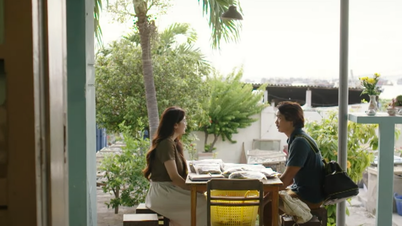

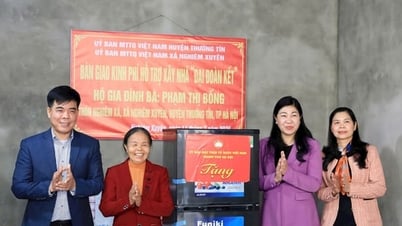
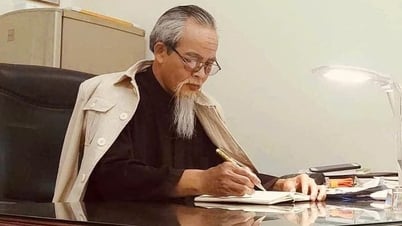




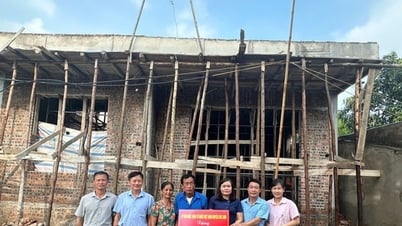




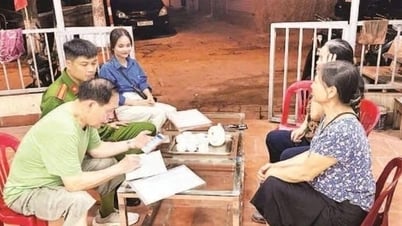
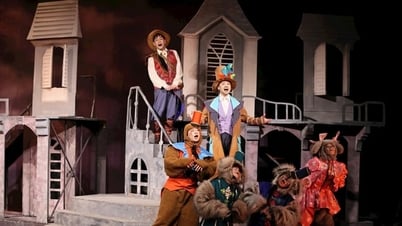
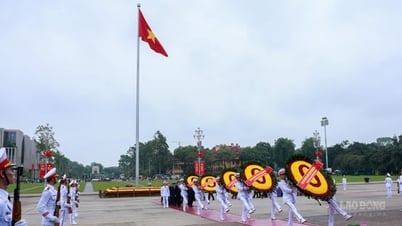
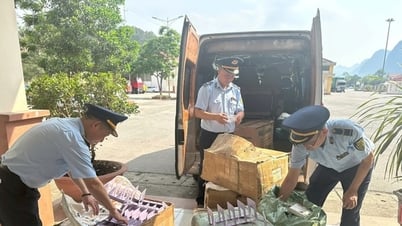
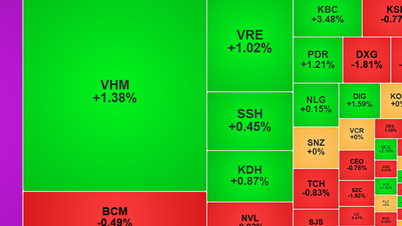
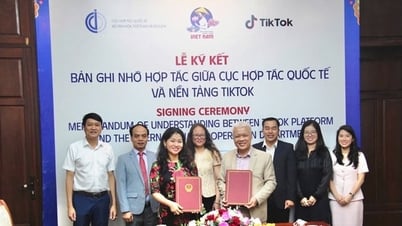
![[Photo] Prime Minister Pham Minh Chinh inspects the progress of the National Exhibition and Fair Center project](https://vphoto.vietnam.vn/thumb/1200x675/vietnam/resource/IMAGE/2025/5/19/35189ac8807140d897ad2b7d2583fbae)
















































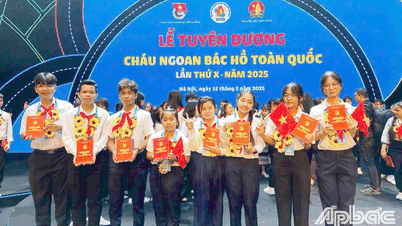

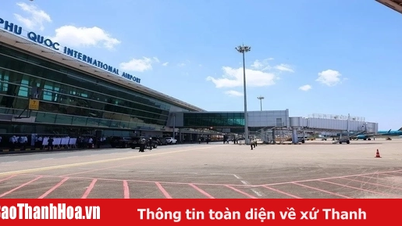

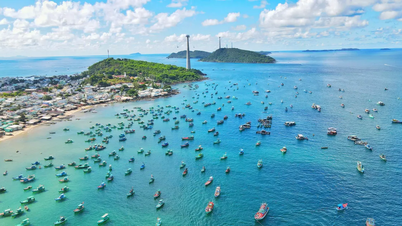

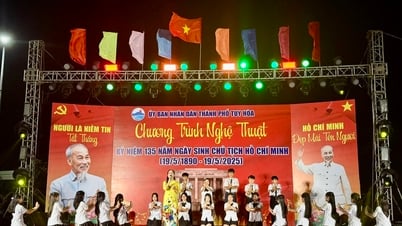




![[VIDEO] - Enhancing the value of Quang Nam OCOP products through trade connections](https://vphoto.vietnam.vn/thumb/402x226/vietnam/resource/IMAGE/2025/5/17/5be5b5fff1f14914986fad159097a677)





Comment (0)